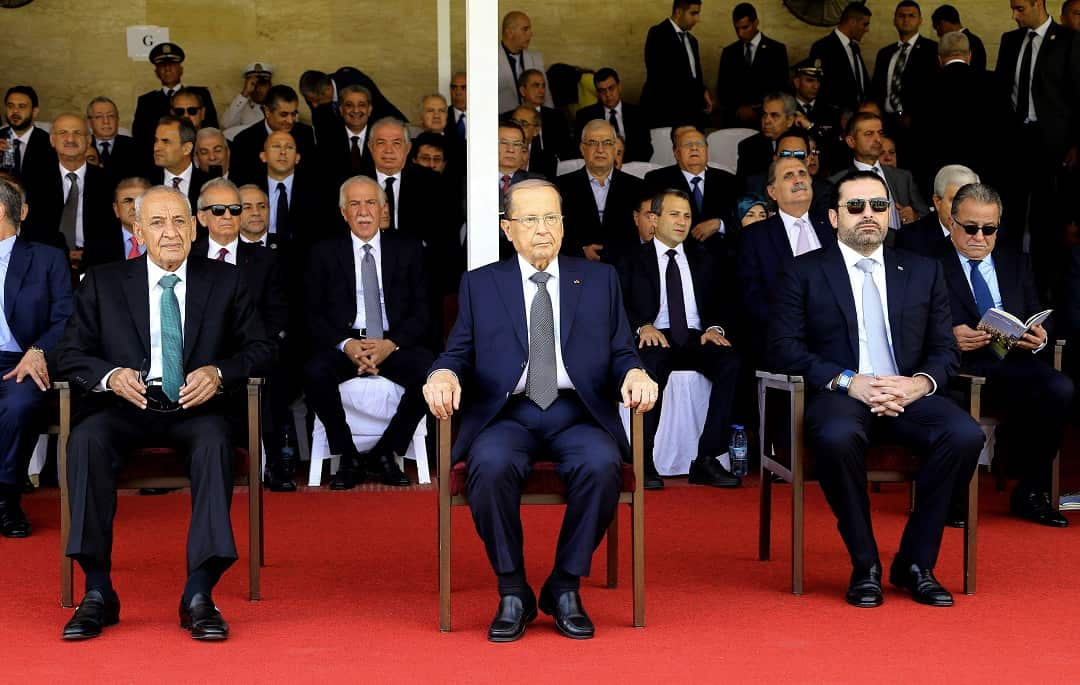Lebanon's president said Saturday on the eve of parliamentary elections that he was confident the vote would bring a more proportional government to power, even if his party lost seats.
Sunday's legislative vote will be Lebanon's first since 2009, after parliament agreed on a new system last year that replaced majoritarian mechanisms with proportional ones.
In an interview aired on BBC Arabic Saturday, President Michel Aoun said he was "completely content with the law."
"We may lose some seats in some districts and win others elsewhere," said Aoun, who is 84 and long headed the Free Patriotic Movement (FPM).
But the new law would lead to "100 percent accurate representation," he said.  The FPM has for years been allied with Iran-backed powerhouse Hezbollah, usually against Prime Minister Saad Hariri's Saudi-backed Future Movement.
The FPM has for years been allied with Iran-backed powerhouse Hezbollah, usually against Prime Minister Saad Hariri's Saudi-backed Future Movement.

Lebanese President Michel Aoun (C), Prime Minister Saad Hariri (R) and Parliament Speaker Nabih Berri (L). Source: AAP
But Lebanon's major political players have always ruled through consensus, which leaves little to chance and often slows the pace of progress.
That won't change with the new elections, Aoun said Saturday.
"The style we work in is consensual decision-making. This may lead to some slowness but it saves us problems," he said.
"If we win, we all win together. And if we lose, we all lose together," said the head of state.
Despite the reformed law, there is little hope that political newcomers will make a breakthrough against Lebanon's entrenched ruling elite.
Weeks of campaigning passed without major security incidents across a country threatened by spillover from the conflict in neighbouring Syria.
Hezbollah, which stands to hold on to and potentially expand its clout with Sunday's elections, is fighting in the war on behalf of Syrian President Bashar al-Assad.
Some have feared its activities could once again drag Lebanon into a conflict with Israel, which has struck Hezbollah and Syrian government forces several times.
Aoun sought to allay those fears, saying on Saturday: "Responding (to Israel) from here is still rhetoric."
He said the movement, branded a "terrorist" group by the US, is not just Lebanon's problem.
"The issue of Hezbollah's involvement in Syria is linked to the Middle East. Hezbollah can not just leave the conflict, because it is now part of the balance of power," he said.
Aoun dodged a question by the BBC on whether he would visit his Syrian counterpart by saying he had not been invited.

